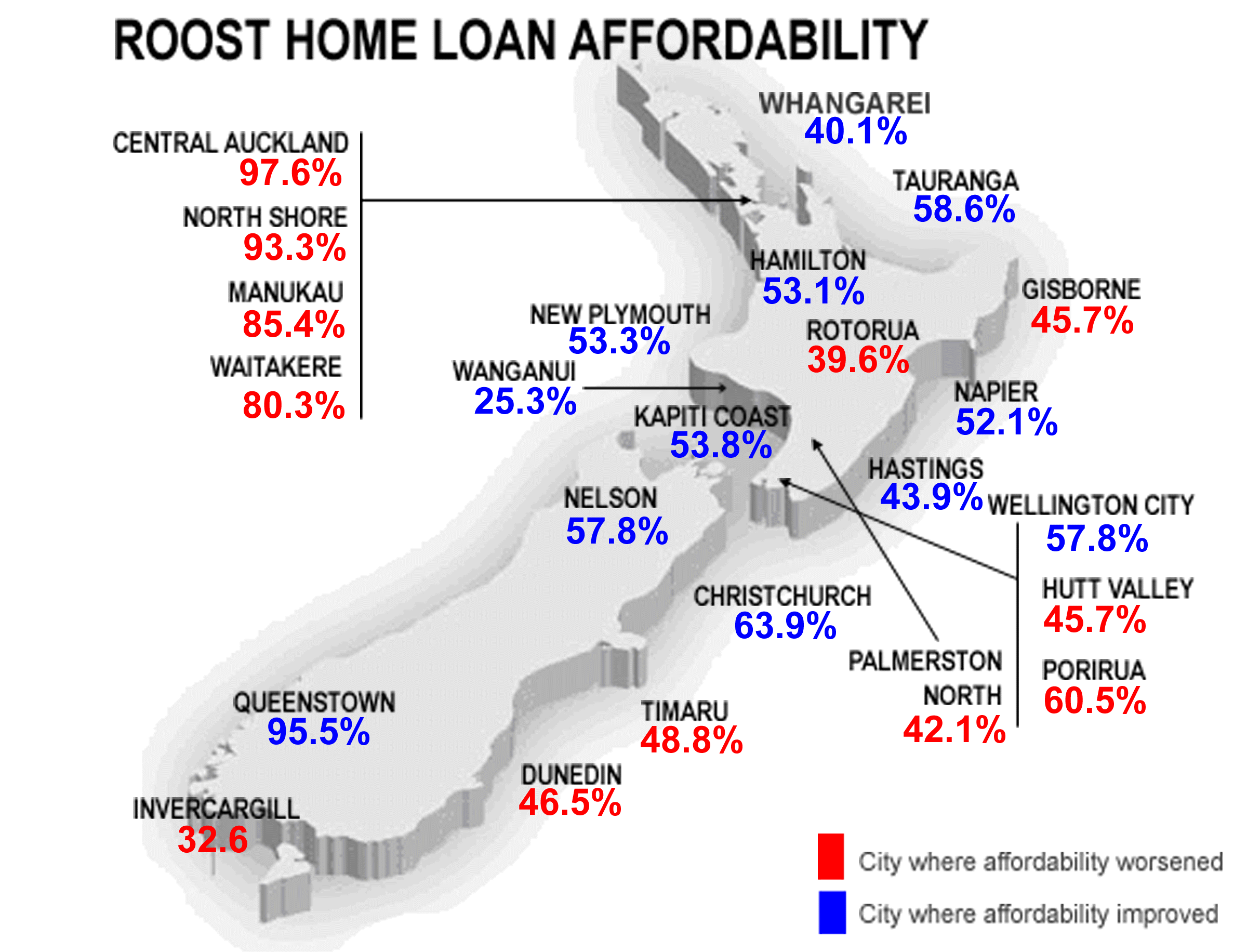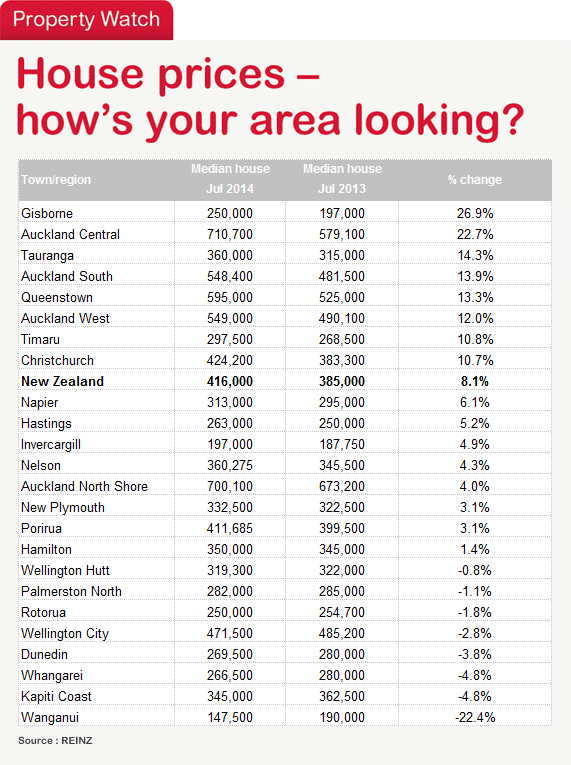
Home loan affordability improved across most of New Zealand in July for the second consecutive month after a fall in median house prices more than offset a slight rise in interest rates.
The Roost Home Loan Affordability Reports showed an improvement in most regions including Christchurch, but not in Auckland where rising house prices worsened affordability again.
A 2.6% fall in the national median house price in July and a slight rise in wages was just enough to compensate for increases in mortgage rates over the month.
The Roost Home Loan Affordability reports show national affordability improved to 62.0% in July from 63.0% in June after the national median house price fell to NZ$416,000 from NZ$427,250 in June.
Average two-year fixed mortgage rates rose to 6.45% in July from 6.42% a month earlier.
Banks have been more aggressive in recent months in offering cut-rate longer-term fixed mortgage rate deals, passing on the benefits of low international and local funding costs.
Average two-year mortgage rates have fallen to 6.14% and banks are offering more 80% plus mortgages.
"Banks are increasingly keen to win business and grow lending, which means they are offering deals to the right customers," said Roost Home Loans spokeswoman Colleen Dennehy. "Borrowers often need some help to understand and negotiate the best deals and that's where a broker can step in," Dennehy said.
The Roost Home Loan Affordability reports for July showed affordability for regular home buyers improved in Northland, Waikato, Tauranga,
It was toughest for first home buyers on the North Shore of Auckland, where it took 107.6% of a single median after tax income to afford a first quartile priced house, albeit down from 110.3% the previous month. South Auckland was only slightly less expensive at 106.7%.

Housing affordability has become a major economic and political issue over the last 18 months. The Reserve Bank and Government agreed on a toolkit of 'macro-prudential' controls that would see the central bank impose limits growth in high LVR mortgages. Central and local governments are also moving to address housing supply shortages. The Reserve Bank's speed limit was applied on October 1 and it said in its June Monetary Policy Statement it appeared to have worked to reduce house price inflation by around 2.5 percentage points.
For first home buyers – which in this Roost index are defined as a 25-29 year old who buys a first quartile home – there was a improvement in affordability in most regions covered and the national measure also improved because of a fall in the cheapest quartile of houses.
It took 50.9% of a single first home buyer's income to afford a first quartile priced house nationally, down from 51.8% a month earlier. The most affordable city for first home buyers was Wanganui, where it took 17.9% of a young person's disposable income to afford a first quartile home.
Any level over 40% is considered unaffordable, whereas any level closer to 30% has coincided with increased buyer demand in the past.
For working households, the situation is similar, although bringing two incomes to the job of paying for a mortgage makes life considerably easier. A household with two incomes would typically have had to use 40.7% of their after tax pay in July to service the mortgage on a median priced house. This is down from 41.5% the previous month.
On this basis, most smaller
For first-home buying households in the 25-29 age group (which are assumed to have no children), affordability nationally improved to 24.7% of after tax income in households with two incomes required to service the debt from 25.2% the previous month. The lower quartile house price fell to NZ$281,000 from NZ$287,750 in June.
Any level over 30% is considered unaffordable in the longer term for such a household, while any level closer to 20% is seen as attractive and coinciding with strong demand.
First home buyer household affordability is measured by calculating the proportion of after tax pay needed by two young median income earners to service an 80% home loan on a first quartile priced house.
---------------------------------------------------------------------------------------------------------------------------------------
Mortgage choices involve making a significant financial decision so it often pays to get professional advice. A Roost mortgage broker can be contacted by following this link »
---------------------------------------------------------------------------------------------------------------------------------------
No chart with that title exists.
Full regional reports are available below:


We welcome your comments below. If you are not already registered, please register to comment
Remember we welcome robust, respectful and insightful debate. We don't welcome abusive or defamatory comments and will de-register those repeatedly making such comments. Our current comment policy is here.